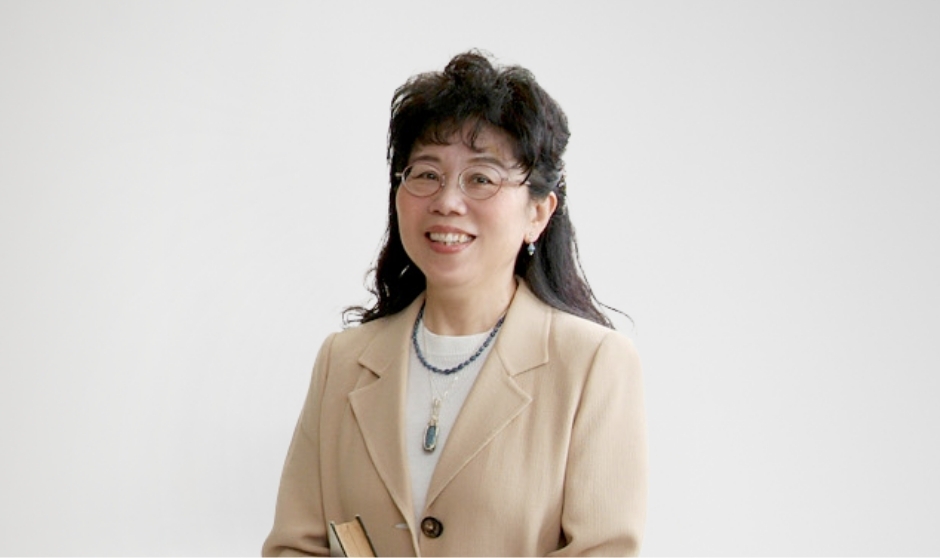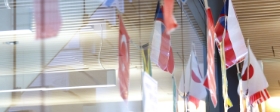ProfessorNOZAKI, Yoshiko

In my classes, so-called "Active Learning Methods" will be used. I expect each and every student to study actively and prticipate in class and assigned activities.
Courses
- Study Abroad I ・II
- Social Diversity
- Theme-based-discussions: Gender and Development
- CLIL Seminar: Human Rights and Economic Development I & II
In my CLIL seminar classes, students will learn concepts and languages to analyze, speak, and write about the issues of human rights and economic development from socio-legal perspectives in order to examine the international agencies and relations. Students will continue to develop the English communication and presentation skills they acquired during their study in the faculty of international social sciences. There will be chances to hear guest speakers’ talks, or attend a conference/symposium.
CLIL seminar I focuses on several related questions, including:
- What are current challenges we face when we pursue “human rights” as a project?
- What is the problem with the theory of modernization?
- How are the ways people talk about rights different and contradictory?
- Which organ of the UN is responsible for the issues of human rights? How does it work?
- What kinds of problems do we face when we try to translate rights from laws and legal precedents into actual lived realities?
CLIL seminar II focuses on several related questions, including:
- What are key concepts that are important to understand how international law works?
- How can we see the United nations in terms of ensuring that “developments” give fruits to all?
- In what ways do “sustainable development” goals work?
- What are challenges for regional systems to protect and promote the right to economic and sustainable development?
- What does “equality” actually mean? What do we need to ensure that?
Profile
| 2016 | Professor, the Faculty of International Social Sciences, Gakushuin University |
| 2014 | Professor, Center for International Education, Waseda University, Japan (-2016) |
| 2013 | Researcher, Japan University Accreditation Association (~2014) |
| 2012 | Associate Professor Emerita, State University of New York at Buffalo (-present) |
| 2008 | Associate Professor (tenured), Department of Educational Leadership & Policy, State University of New York at Buffalo (-2012) |
| 2002 | Assistant Professor, Department of Educational Leadership & Policy, State University of New York at Buffalo (-2008) |
| 2000 | Lecturer (full-time, tenured), Department of Social and Policy Studies in Education, Massey University, New Zealand (-2001) |
Fields of Specialization
Historical SociologySocial Research MethodsJapan StudiesUS StudiesGenderHigher EducationResearch content
Nozaki is a historical sociologist by training, as she completed her BA at Nagoya University, specilializing in Japanese history, and earned MA and PhD with a concentration “Social Sciences and Education” in the Department of Educational Policy Studies at the University of Wisconsin-Madison. She locates her research at the intersection of educational research and Asian Studies in general, and Japan Studies in particular. Western research on Japanese education has tended to focus on a narrow range of topics such as students’ test scores and achievements; Japan Studies directs close attention to the larger sphere of people’s lives, though its focus is often not on education. Her research fills the void, bringing Asian Studies concerns (e.g., politics of war memories, gender relations, and ethinic minority issues) into educational research, and, in return, offering up her knowledge of complex Japanese educational and social system(s), political-economic policies, and local practices to Asian Studies audiences. Nozaki has become interested in higher education research from global perspectives since she taught comparative higher education classes at the State University of New York at Buffalo, and has published articles focusing on such topics as women’s participation, internationalization, and governmental involvements in higher edcuation in various countries.
Major Publications
- Yoshiko Nozaki. (2024).”Dear Asian friends, we want to build peace” Rightwing nationalism, internationalism, and Honda Koei’s history teaching about the Asia-Pacific War, 1965-1973. In Zhouxiang Lu (Ed.), The Routledge Handbook of Nationalism in East and Southeast (pp. 213-233). London: Routledge.
- Darren O’Hern & Yoshiko Nozaki. (2014). Natural science education, indigenous knowledge, and sustainable development in rural and urban schools in Kenya: Toward critical postcolonial curriculum policies and practices. (Foreword by Michael W. Apple) Boston & Taipai: Sense Publishers. (xiii, 162 pp.)
- Yoshiko Nozaki. (2010). Japanese immigrant and transient students in the United States. In Yong Zhao (Ed.), Handbook of Asian education: A cultural perspective (pp. 293-315). Mahwahi, NJ: Lawrence Erlbaum.
- Hiromitsu Inokuchi & Yoshiko Nozaki. (2010). What U.S. middle school students bring to global education: Discourses on Japan, formation of American identities, and the sociology of knowledge and curriculum (Foreword by Michael W. Apple). Boston & Taipai: Sense Publishers. (xi, 152 pp.)
- Yoshiko Nozaki. (2008). War memory, nationalism, and education in postwar Japan, 1945-2007: The Japanese history textbook controversy and Ienaga Saburo’s court challenges (Foreword by Richard Minear). London: Routledge. (xx, 198 pp.)
- Yoshiko Nozaki & Rachel Fix Dominguez (Eds.). (2008). Gender equality and higher education in Asia and beyond (including 7 pp. co-authored introduction, first author). Buffalo: Graduate School of Education, University at Buffalo (SUNY) & State University of New York Press. (67 pp.)
- Yoshiko Nozaki, Roger Openshaw, & Allan Luke. (Eds.). (2005). Struggles over difference: Curriculum, texts, and pedagogy in the Asia-Pacific (including 10 pp. co-authored introduction, first author). Albany: State University of New York Press. (251 pp.)
Contact

Office : South 2-302

 Japanese
Japanese

 Contact Us
Contact Us